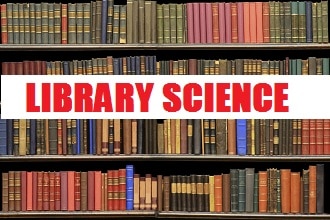 In 2003, around the New Year’s holiday, I spent a little over 30 hours (in the span of two days) teaching myself how to use Microsoft’s now defunct program FrontPage. By New Year’s Day, my eyes burned, my right wrist ached from (self-diagnosed) carpel tunnel syndrome, and most importantly, I completed my first website (a volunteer effort to redesign my employer’s web presence). I guess back then I should have figured I was on to something when the shooting pain in my wrist really did not bother me as much as the difficulties I had in embedding Flash files into HTML (I was determined to include a Flash banner, which provided the visitor with a dazzling text tween that displayed the name of the program I worked for).
In 2003, around the New Year’s holiday, I spent a little over 30 hours (in the span of two days) teaching myself how to use Microsoft’s now defunct program FrontPage. By New Year’s Day, my eyes burned, my right wrist ached from (self-diagnosed) carpel tunnel syndrome, and most importantly, I completed my first website (a volunteer effort to redesign my employer’s web presence). I guess back then I should have figured I was on to something when the shooting pain in my wrist really did not bother me as much as the difficulties I had in embedding Flash files into HTML (I was determined to include a Flash banner, which provided the visitor with a dazzling text tween that displayed the name of the program I worked for).
The above anecdote is probably the best way I can sum up the curiosity and enthusiasm I exude when learning and working with new technologies, whether at home, at school, or in the workplace. I have earned the moniker “Techie” among family, friends, peers, and co-workers alike. From my supervisor to my eighteen year old stepdaughter, I am sought for technical advice and counsel on a daily basis. Frankly, the technical knowledge I have and continue to garner truly exists as a result of self-exploration and a sincere feeling of joy and fulfillment. I always tell people, “You can’t learn anything unless you try, and maybe fail at, something you know nothing about.”

At this point, you are probably asking yourself, “So exactly why an MLS? Can you get to the point already?” Well at the moment, I am at sort of a fork in the road. While I have come to realize how much I truly enjoy imparting and applying my technological knowledge, I am unable to engage in this sort of instruction on a regular basis.
One additional not-so-simple task that I enjoy undertaking led me to explore the profession of librarianship: research. Every semester, my wife calls upon me to assist her in finding resources – books, journal articles, anything she needs to assist in completing her doctoral studies. I do not share this with anyone, but I enjoy the hunt for hard-to-find sources (whether it be a paperback book or a digital manuscript). Going to old (and sometimes dusty) library shelves to find a book or scouring the internet to find a PDF document is like hunting for treasure (and a guilty pleasure of mine).
In addition to my research interests and technology-skill application in the work place or classroom, I am learning about the librarianship profession this term in one of my classes, Technology and Society. The concept of blended librarianship was introduced, implying “that blending the perspectives, expertise, and skills of instructional design, technology, and traditional librarianship will open new avenues of practice and professional development for academic librarians… Blended librarians are new professionals who are knowledgeable in the traditional roles, but they also develop competence in information technologies and curricular design” (p. 109)*.
Some people often get caught up with the term “Library” and fail to see the opportunities a degree in Library and Information Science can afford. Admittedly, I was one of those people. And for those who really know me and my background, my decision to pursue a Master of Library Science (MLS) degree from Queens College make perfect sense to them – light bulbs go on in their heads.
Librarianship will provide me the opportunity to apply my technological skill set, while also learning how to search, maintain, and provide information resources to those I serve. It will also allow me to impart practical and sound advice on research best practices.
*Cline, H. F. (2014). Information communication technology and social transformation: A social and historical perspective. New York: Routledge.